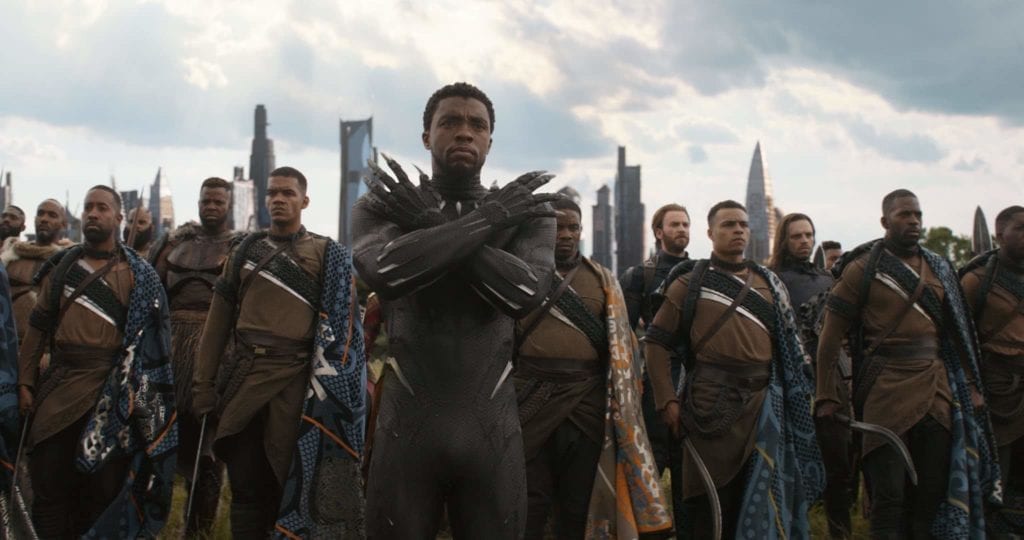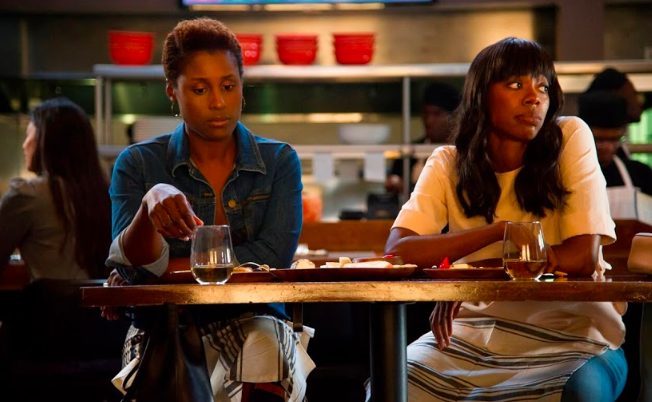
‘Nappily Ever After’: Women of color and their hair
Netflix has debuted the first official trailer for the indie romantic drama Nappily Ever After, the latest film from director Haifaa Al-Mansour of Mary Shelley fame. Based on the novel of same name by Trisha R. Thomas, the film stars Sanaa Lathan as advertising executive Violet Jones, a woman who has it all – the “perfect” job, the “perfect” boyfriend, and the “perfect” hairdo.
However, when her life all comes crashing down, she’s left reassessing what matters and in a moment of clarity, Violet finally lets her hair down (by shaving it all off). Freed from weekly salon appointments and expensive hair treatments, she is finally able to focus on what matters in life.
But as you might have guessed, Nappily Ever After is so much more than a story about coiffure consciousness. Not only is it a meditation on life choices, depicting what happens when you throw traditions out of the window and start living life by your own rules, but it’s also being praised by black women across the globe for highlighting their relationships with natural hair.
Some black women are praising a Netflix film for highlighting their relationships with natural hair
“BLACK GIRLS NEEDED THIS! Thank you @netflix,” wrote Twitter user nikeria. “The amount of strength, pride, and identity that black women hold in their hair is both mentally/physically exhausting and completely liberating,” said Raissa Ames when discussing the film. Elsewhere, tweeter Ross mused, “No diss those who perm, fry, or weave, to fit the majority’s beauty standards that we’ve been conditioned to accept. All hair is ‘good hair,’ no matter the texture. I have Netflix. I’ll be watching.”
Many others highlighted the trailer moment in which Violet’s mom heats up a comb on the oven in order to singe her hair straight, including user Xaria who declared: “FINALLY! A show where I can relate to regarding my hair struggles.”
The reaction to the trailer alone shows that the messages the film portrays regarding the identity black women hold in their hair are essential if we’re to open a discussion and break the cycle regarding attitudes towards beauty standards and the repression of black identity in society today.

As London-based hair and beauty journalist Sue Omar expressed in her Stylist op-ed “All About Afro: untangling the politics of black hair”, “It’s undeniable that black hair is a political topic that is heavy with historical connotations of slavery and black identity.”
From the 19th Century when the Europeans shaved off slaves’ hair in a bid to repress their culture to modern mainstream media where Beyonce opened up a can of worms with her lyric “call Becky with the good hair”, it’s fair to say there is more to a black woman’s hair than meets the eye.
As Omar went on to state, “When we talk about Afro hair, it’s important that we delve deeper and explore not only its history, but how we can change the way it is perceived both within and outside of the Afro hair community.”

That’s why media is so important in changing these perceptions, and why Nappily Ever After is receiving so much praise – because it’s narratives like these that not only offer a story that black women can relate to, highlighting their relationships with natural hair, but also show a strong woman finally freeing herself of the white beauty ideals installed in modern culture, conveying to audiences that natural is beautiful.
Such messages are starting to make their way through to mainstream TV in shows like Black-ish and the spinoff Grown-ish, in which actors such as Yara Shahidi – who plays Rainbow’s (Tracee Ellis Ross) daughter Zoey – have become role models in encouraging black women to embrace their natural styles. “The young star is evolving the way black women’s hair is depicted with her mega display of curly girl up-do’s, braids and everything in between,” noted Essence.

Actresses such as Shahidi are using their platforms in Hollywood in order to challenge biases that exist within the entertainment industry and beyond, against women and people of color – something which Shahidi herself agrees is a complicated issue.
In a recent interview with The Cut, the actor said, “I have natural hair and have always embraced it . . . I know how culturally significant hair is because curls are representative of my people, but I’m also a teenager who wants to experiment with hair and see what it looks like in a different way without being viewed as a sellout.”
Shahidi went on to discuss the “boxer braids” phenomenon, explaining, “we’re not complaining about this ‘boxer braid’ term for the sake of being sticklers. Just can you please embrace the fact that black culture contributed to things?”

HBO’s Insecure is another show noted for its portrayal of black women’s hair, with creator and star Issa Rae wearing her natural hair in a short style that is not straightened or lengthened. Rae’s stylist Felicia Leatherwood makes a point of changing up her style on the regular to show off a variety of different do’s.
“My main focus is to represent the natural hair community in a way that they feel inspired and (feel they can) do it on their own hair,” Leatherwood told Refinery29. “I don’t want to give her something that’s completely outlandish. Something that’s not reasonable for someone at home to copy. They shouldn’t feel like that’s impossible.”
Shows like Black-ish, Grown-ish, and Insecure are finally touching on the cultural significance of black women’s hair both on and off screen, breaking the attitudes of Western beauty ideals and showing women that natural is beautiful.

While such shows that promote the rise in popularity over natural styles are a cause for celebration and encourage women to do what’s easy for them, it’s been a slow process to say the least. “We’re very slowly getting more representation of black women on TV,” said Rae. However, it is a “catch-22 because the diversity of our hair isn’t reflected at all.”
Which is what makes these victories so significant – while there’s still a way to go, TV shows and movies such as Nappily Ever After, Insecure, and Black-ish are promoting encouraging messages regarding black identity and the significance of going natural. So be sure to tune into Nappily Ever After when it drops on September 21 and as the tagline states: “Get ready to fall in love with yourself”.



